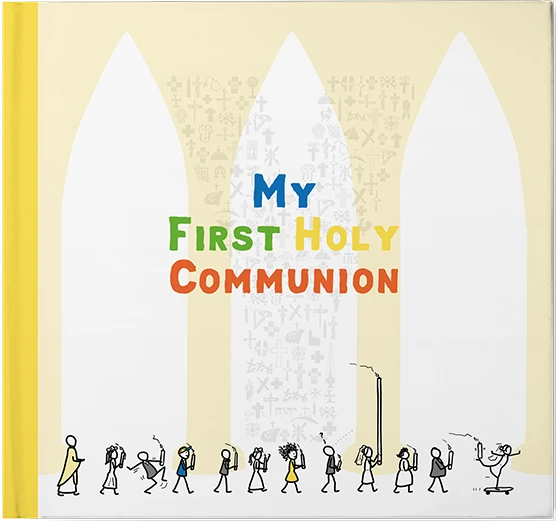

Credopedia
What is Kerygma?
Kerygma (also known as proclamation) stands for Christian preaching. Where it comes from and how it is described in the bible you will find out in this article.
Definition
Proclamation / Kerygma
“Proclamation” is one of the most important tasks of the church. The Greek word “kerygma”, which is already used in the New Testament for the public dissemination of a truth or message received from God, actually means “proclamation”; it was used for the loud proclamation of something extremely important, as the emperors of antiquity sometimes ordered in the great squares of the cities. The content of the proclamation and the beginning of every Christian existence is: “Jesus Christ as Lord” (2 Cor 4:5). Pope Francis describes the first proclamation with which everything begins, with the words: “Jesus Christ loves you; he gave his life to save you; and now he is living at your side every day to enlighten, strengthen and free you.”(Evangelii Gaudium 164)
What does the Holy Bible say?
The Proclamation begins with God himself, who already in the Old Testament gives people messages that they cannot have from themselves. We find the primal scene of a proclamation at the beginning of the Gospel of Luke. (Luke 1:26ff.) An angel of God visits a simple young woman – with a completely incredible message from above. Mary finds faith and is completely ready to accept what is being proclaimed. John the Baptist, the last prophet of the Old Testament, announces the coming of someone to whom he is not even worthy to untie the shoelaces (Jn 1:27). Jesus himself is a preacher; he begins his public ministry with an appearance in the temple of Nazareth, where he refers to a prophet’s word of Isaiah (“The Spirit of the Lord rests on me”). Later, Jesus also requires his disciples to confess him, so that Peter proclaims for all what Christians of all centuries will proclaim at the moment they become Christians: “You are the Christ, the Son of the living God! (Mt 16:16) To proclaim this is Peter’s first public appearance (Acts 2:14,36-38). Even imprisonment does not scare Peter and John away from this (Acts 4:23 ff.) In the First Epistle of Peter, “proclamation” is expected of every Christian: “Be always ready to answer to anyone who asks about the hope that is fulfilling you:” (Mt 16:16). (1 Peter 3:15) But the task of proclaiming is entrusted to the apostles (and their successors) in a special way: “Woe to me,” says Paul in 1 Cor 9:16, “if I do not proclaim the gospel!
A short YOUCAT-Catechesis
Marathon for Jesus
Pheidippides was the name of the man who wrote history in the year 490 BC. Legend has it that he was the messenger who, after the battle of Marathon, brought the citizens of Athens a very important message. For two days, it is said, he ran without interruption, only to collapse dead in Athens with the words “We have won! Eliud Kipchoge needed 1:59:40 for his unofficial world record in 2019 for almost the same distance – and he is still alive. If the Kenyan were a normal marathon runner, his run would have brought the world only the message: “I have won! But Eliud Kipchoge is not the kind of person who drums on his chest after victories and displays his athlete’s body for media adoration. The believing Catholic, who regularly attends Holy Mass and prays the rosary, knelt down after his world record, bowed his forehead to the ground and made a sign of the cross in gratitude.
For me Eliud Kipchoge is more than a world record holder in the marathon – for which I admire him; he is a “kerygmatic”, a proclaimer of Jesus – for which I love him. His miracle run of Vienna served to deliver a world-historical victory message that affects all people and every life; it is: We no longer have to save ourselves. We are eternally loved, saved and redeemed through Jesus Christ. He is our Lord. To him is due “glory for ever and ever” (Phil 4:20) Eliud Kipchoge understood what it means to be a Christian: be a “preacher of the gospel, faithfully fulfill your ministry! (2 Tim 4:5).
One day God will not ask Eliud Kipchoge how he managed to beat the two hours in his world record. He will ask him about the essence of his life: What did you do? What were you there for? Eliud Kipchoge might be one of the lucky ones who can say: Behold, my Lord, I have tried all my life to do as Paul did: “I have fought the good fight, completed the run, kept the loyalty.” (2 Tim 4:7) Besides, I may have run quite well, but I was proclaiming you, not me.
When Christianity was still in its infancy…
In the early church one still clearly distinguished between two realities – between “Kerygma” and “Didaché”, i.e. between “preaching” and “teaching”. The Mothers and Fathers of the Church did not want to begin with teaching (the reasonable reflection on faith) until the message of all messages – the “Kerygma” – had reached a person and really taken root in him. They thought: There is no point in talking about faith, giving catechesis, doing theology if this initial faith is not there. Father Raniero Cantalamessa, the preacher of the Pontifical House, still thinks so today. Theology is of course “very relevant … but not for someone who first has to hear the Kerygma and then has to be taught catechetically. Otherwise, it is like a discourse on swimming didactics without ever having been in the water.”
How does one come into this living contact with the reality of God? Certainly through external impulses. But ultimately through grace. YOUCAT 338: “By grace, we understand God’s free, loving attention to us, his helping kindness, the life force that comes from him. It is God who does something in the heart of a person; it is he who awakens faith. In YOUCAT 21 it says: “Faith is a pure gift from God, which we receive when we ask for it with all our heart. The precise moment when this happens in a person is best studied with Jesus himself, who was a great evangelizer. Whether with the Samaritan woman at the well (Jn 4) or the Canaanite woman (Mt 15) – suddenly it „clicks” and people come away from themselves through the power of an encounter and into the great trust in Jesus. They develop a form of curiosity, through which the gate opens into a fascinating world – into ever new secrets of love, which one cannot cope with for a lifetime.
Have to hand out soup voluntarily?
And this stage on the way to becoming a Christian still exists today. A friend – Maximilian Oettingen – tells how it was for him when his being a Christian was still in its infancy. He had heard a lot about God and faith in his entire environment – his family, his school. But it rolled off him, did not enter him, remained on the outside. Kerygma had not yet broken into his life. Then he saw young people who had given their lives to Jesus, and he got passionate ears: “I was fascinated – and torn apart. For in my deepest being I immediately realized that Jesus was by no means the Lord of my life.
To place his full trust in Jesus – that attracted him mightily; but at the same time he was overcome by naked fear: ” Wouldn’t yawning boredom break out immediately in my life, wouldn’t I myself become bored, would I get involved with Jesus 100 percent? Wouldn’t I have to hand out soup on weekends with a bloodless expression on my face? Wouldn’t I have to marry an old, ugly, probably toothless woman? A friend gave him the decisive hint: “Maxi, everything is great. This inner conflict, – what you’re experiencing is normal. The important thing is that you now begin to confess with your mouth that you trust Jesus, that His will may be done in your life. And sometime you will be able to believe it with your heart.” And so it happened. He heard the message and became its proclaimer and witness. A normal layman, married, with several children. Ready to go very far to bring the Good News to ever new people. Ready to run a marathon for Jesus.
The true champs of proclamation
Not only in Athens, but also in the church, there were and are “messengers”, i.e. professional messengers of news. The Greek word for this is “Apostolos”. It is interesting to imagine that such weighty people as bishops should first and foremost be agile, fast, lasting and reliable messengers of Jesus – driven by a message that must be delivered at all costs. In YOUCAT 144 it says: “Bishops must first and foremost be Apostles – faithful witnesses of Jesus, who has called and sent them personally to his presence. Thus they bring Christ to the people and the people to Christ. This is done through their proclamation, the celebration of the sacraments, and the governance of the Church”. There were and are wonderful bishops, but unfortunately also those who abused their authority and deterred people more from the faith than led them to it. For the Kerygma is not so much conveyed by words as by a life that shines from within. “The congruence of life and witness,” says YOUCAT 347, “is the first condition for the proclamation of the gospel.
That is why one should meditate on this wonderful Russian icon. Jesus has ascended to heaven. Now the church is in the foreground. It could spread in an unpleasant, masculine way: We have! We can! We command. But in the middle of the picture there are no masters of faith and owners of truth, but the true master of preaching. In the heart of the Church there is the speaking existence of that woman who gave and still gives birth to the one who matters: Jesus.
In her love HE is there.

YOUCAT Digital
Discover our digital products, which will help you to grow in faith and become missionaries yourself.







